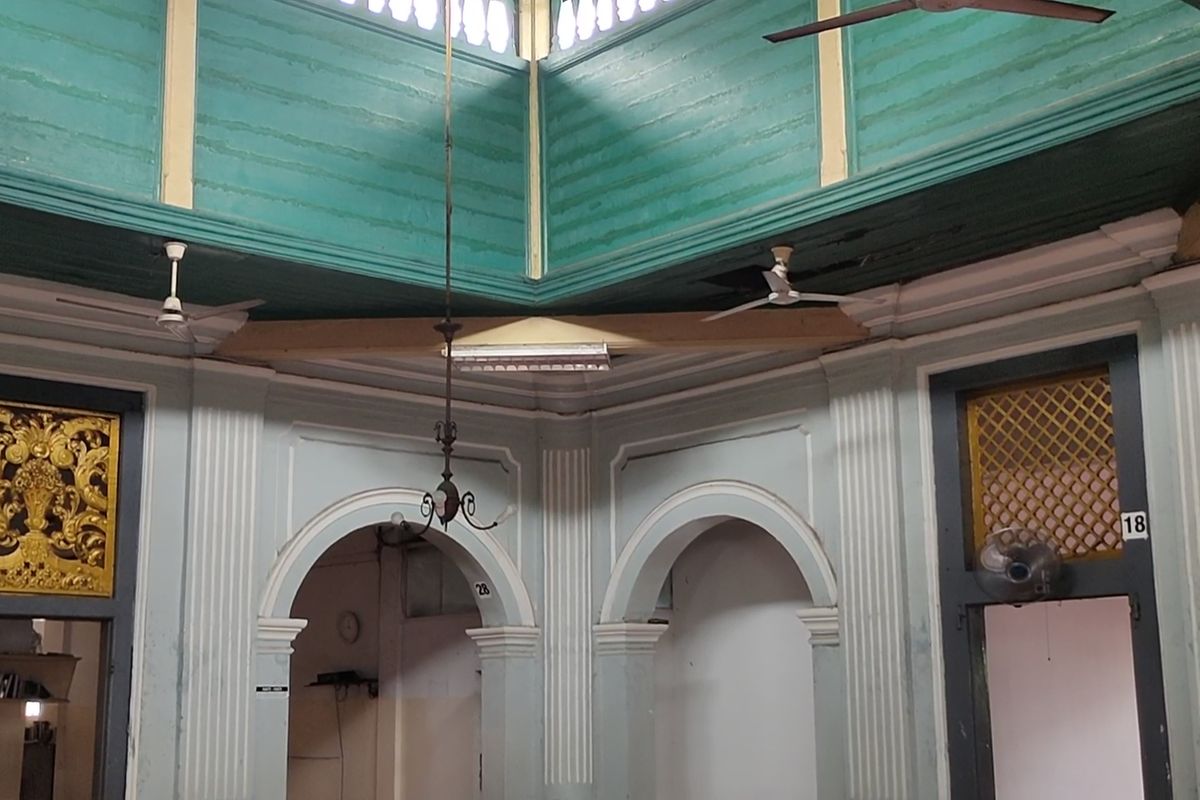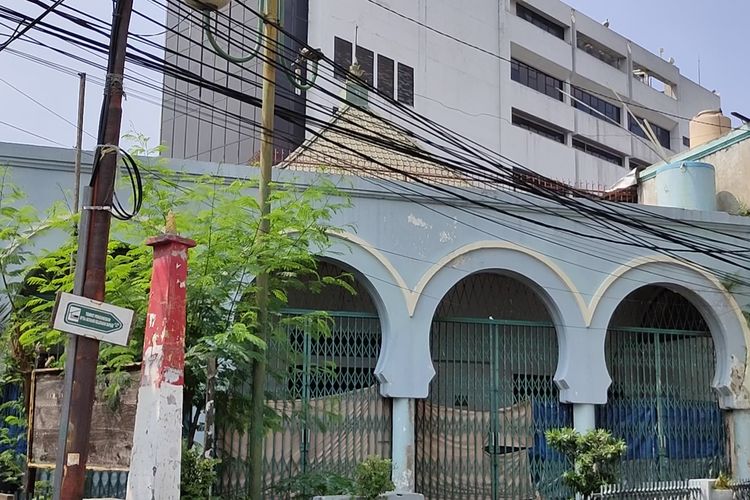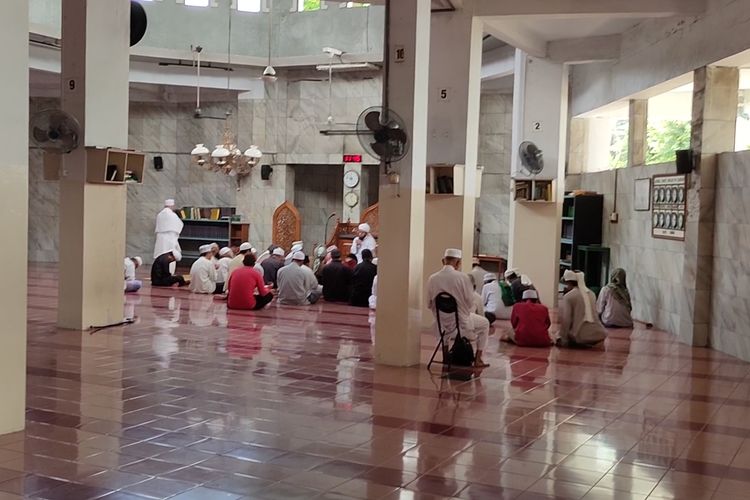Jami Kebon Jeruk Mosque, Silent Witness to the History of Indonesia's Chinese Muslims

JAKARTA, KOMPAS.com - Indonesia might have the world's largest Muslim population. But Chinese Muslims are arguably the smallest of all of the country's ethnic groups which practice Islam, as they are a minority within Indonesia's ethnic Chinese community.
As such, Chinese Muslims do not have many outlets to assert their socio-political interests and identity. But one of a number of rare places where they can do so is the Jami mosque in Kebon Jeruk, West Jakarta.
Sited on land belonging to a Mr. Tschoa or Kapitan Tamien Dossol Seng, construction of the mosque started in 1780 and lasted 17 years. Since its consecration in 1797, this house of worship has stood as a silent witness to the history of Chinese Muslims in Indonesia.
Also read: Al Hikmah Mosque in Bali, Indonesia, Incorporates Hindu Architecture
Then as now, local Muslims or those passing by go to the mosque to pray. But one would have to look closely to find this house of worship, as it is reduced to a hole in the wall among Jakarta's skyscrapers and urban developmen.
The decorated archways that are a part of any mosque is made up of iron bars with tarpaulin covers. The pyramid-topped Hall of Prayer is supported by a number of gray pillars, its sparse architectural ornaments emphasizing the Islamic content.
Traces of the past
Not many historical traces are left by Mr. Tschoa, who in the Hokkien dialect is called Cai, except a tombstone with the inscription "Xian bi Cai men zhi mu", which means "tomb of the woman of the Cai family."
Sited in the backyard of the mosque, it is the only evidence being the only witness that the mosque was founded by a Chinese Muslim.
 A south side view of the outside of the Jami Kebon Jeruk Mosque, West Jakarta, Tuesday, April 20.
A south side view of the outside of the Jami Kebon Jeruk Mosque, West Jakarta, Tuesday, April 20.Ancient Mandarin inscriptions on the tombstones recount the origins of those buried in the tombs. Among them are a woman from China's Zhong Yang County, who died during the reign of Emperor Qian Long of the Qing Dynasty.
"She died in 1257 Hijriah (1792 AD). Her clan name was Cai," Jami Mosque caretaker Ali Khendra explained to Kompas.com on Tuesday, April 20. "Some locals referred to the woman, who was a member of the original Cai clan, as Fatimah. Others know her as Aisyah."
More familiarly known as Koh Ali, this denizen of Glodok, Jakarta's Chinatown district, is active in managing the mosque and well versed in its history. "Fatimah Cai was Muslim to begin with. She did not convert to Islam after arriving in Indonesia," he said.
Also read: Covid-19: Low Visitors Numbers in World's Largest Wooden Qu'ran Museum in Indonesia's Sumatra
"Islam in China was already developed, as seen in the voyages of Admiral Cheng Ho, an explorer who helped spread Islam to the Indonesian archipelago, particularly the north coast of Java."
Chinese Muslims are nothing out of the ordinary in the Glodok area. Mosques with Chinese cultural influences like exquisite carvings, censers, and other elements are common in the area. They included the Lautze Mosque in Sawah Besar district.
 Activity at Jami Kebon Jeruk Mosque, West Jakarta, Tuesday, April 20.
Activity at Jami Kebon Jeruk Mosque, West Jakarta, Tuesday, April 20.





























